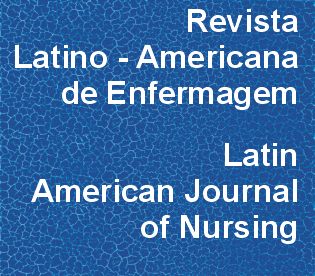Clinical pathway intervention compliance and effectiveness when used in the treatment of patients with severe sepsis and septic shock at an Intensive Care Unit in Spain
DOI:
https://doi.org/10.1590/S0104-11692012000400002Keywords:
Effectiveness, Critical Pathways, Sepsis, Critical CareAbstract
The purpose of this quasi-experimental study was to assess levels of compliance with the intervention bundles contained in a clinical pathway used in the treatment of patients with severe sepsis and septic shock, and to analyze the pathway's impact on survival and duration of hospital stays. We used data on 125 patients in an Intensive Care Unit, divided into a control group (N=84) and an intervention group (N=41). Levels of compliance increased from 13.1% to 29.3% in 5 resuscitation bundle interventions and from 14.3% to 22% in 3 monitoring bundle interventions. In-hospital mortality at 28 days decreased by 11.2% and the duration of hospital stay was reduced by 5 days. Although compliance was low, the intervention enhanced adherence to the instructions given in the clinical pathway and we observed a decline in mortality at 28 days and shorter hospital stays.Downloads
Download data is not yet available.
Downloads
Published
2012-08-01
Issue
Section
Original Articles
License
RLAE’s authorship concept is based on the substantial contribution by each of the individuals listed as authors, mainly in terms of conceiving and planning the research project, collecting or analyzing and interpreting data, writing and critical review. Indication of authors’ names under the article title is limited to six. If more, authors are listed on the online submission form under Acknowledgements. The possibility of including more than six authors will only be examined on multicenter studies, considering the explanations presented by the authors.Including names of authors whose contribution does not fit into the above criteria cannot be justified. Those names can be included in the Acknowledgements section.
Authors are fully responsible for the concepts disseminated in their manuscripts, which do not necessarily reflect the editors’ and editorial board’s opinion.
How to Cite
Clinical pathway intervention compliance and effectiveness when used in the treatment of patients with severe sepsis and septic shock at an Intensive Care Unit in Spain. (2012). Revista Latino-Americana De Enfermagem, 20(4), 635-643. https://doi.org/10.1590/S0104-11692012000400002



